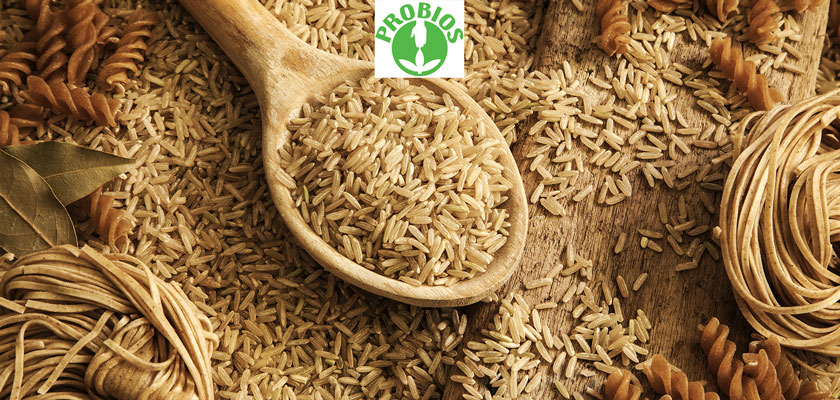
Lately, in fact, more and more studies confirm the benefits arising from their use in the whole version, namely the one which also contains the bran and the germ (rich in nutrients for our health, such as fiber, B vitamins, iron, magnesium, zinc, etc.), in addition to endosperm which is the only part preserved in the so-called refined flour and which contains only proteins and carbohydrates.
Despite this, statistics show that the consumption of whole grains in Western countries has been declining over the past 50 years because of the refining of flours that make food low in fibers and other important nutrients.
Whole grains can be consumed complete, crushed, split, flaked or ground into flour. Their introduction in the diet should be gradual so as to allow the organism to adapt to the increased content of fibers.
Probios, in order to provide the ability to vary the daily diet, including many different types of whole grains, offers various ways of cous cous, a dish of ancient origins and much loved, especially for the versatility and ease of its preparation. Among others, there is the cous cous of buckwheat which, with its organoleptic qualities, gives a strong flavor to this traditional dish; the easy corn and rice cous cous, that thanks to his processing shows well separated grains, ideal for both hot and cold recipes; the cous cous 4 grains (wheat, kamut, spelt and corn), a rich source of fiber.
Discover also the range of cereals in grain.





